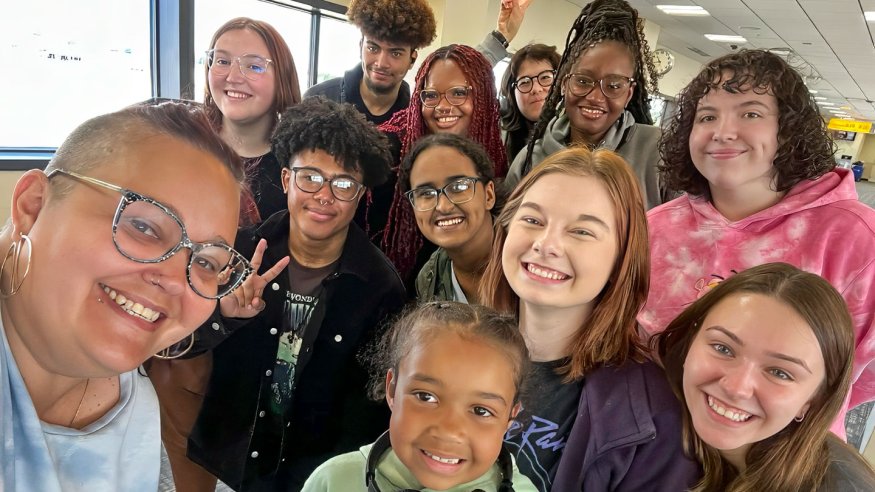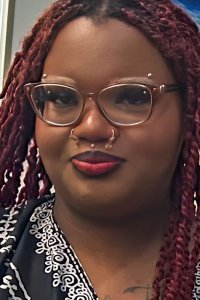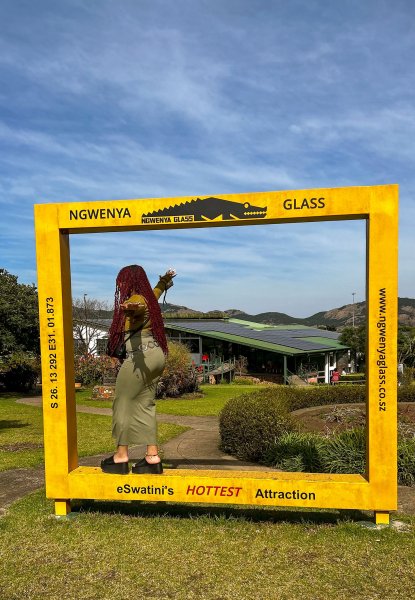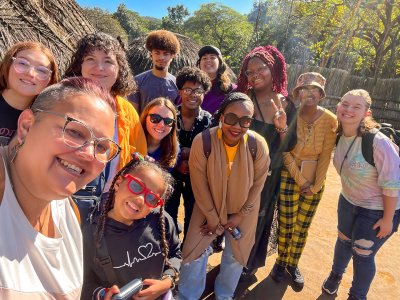
Black Women and Feminisms
Ohio Wesleyan Student Completes Coursework, Research in Southern Africa

Name: Faith Deschamps ’24
Hometown: East Orange, New Jersey
High school: East Orange STEM Academy
Majors: Black World Studies and Women’s and Gender Studies
Minors: Religion and Sociology and Anthropology
OWU Connection Experience: Visiting three countries in Southern Africa (Eswatini, Lesotho, and South Africa) to complete a Women’s and Gender Studies/Health Communications Travel-Learning Course and to conduct research with financial support from a Diversity, Equity, and Inclusion Grant
DEI Grant Research
Deschamps’ research project is titled “The Importance of Black Women and Feminisms on the Continent: My Experiences in Southern Africa.”
“Through this DEI Grant-funded project,” she says, “I have researched and learned about the many cultural identities and practices throughout Southern Africa and the crucial role that Black women often play in preserving these traditions and keeping the community alive.
“I have learned the role that Southern African Black women have played in health activism, political movements, social and kinship networks, and how their involvement in all aspects of Southern African life keeps the community intact and able to thrive. Without the woman, there is no home and there is no community.”
Travel-Learning Course

Deschamps traveled to Southern Africa in May and June to complete the spring semester course, “Health Communication: Black Women and Feminisms.” Faculty members Phokeng Dailey (Journalism and Communication) and Dawn Chisebe (Africana, Gender, and Identity Studies / AGIS) taught the class and led the three-week trip, part of the OWU Connection.
“Throughout my Travel-Learning Course,” Deschamps says, “I learned the importance of perspective especially when you are learning about history and people. It is vital to constantly challenge notions of colonialism and decolonize one’s ideas of womanhood and a women’s role outside of the Western world.
“In my studies pertaining to Black women’s involvement in Southern Africa’s cultural and political sectors as well as health activism, I learned how to challenge my understandings of Africa and the way that it is taught in schools, and form my own understanding of the land, the culture, and its people.”
Career Focus
“This trip did help me focus on my future career paths. I am currently a rising senior in college, and I will begin applying to graduate schools this upcoming fall to pursue my Ph.D. in Africana and Gender Identity Studies. This trip highlighted an example of my future in Black Studies and my ability to travel the world to research and learn about culture. …
“Traveling with Dr. Dailey and Professor Chisebe was honestly probably the best experience I’ve ever had with a professor in my entire life. ... Their ability to pivot and work on our behalf despite challenges faced was amazing to witness, and I don’t think my experience would’ve been nearly as amazing as it was if both of them weren’t alongside this journey with me! Thank you both so much for all the good work that you do; it will never be taken for granted from me ever.”
Memorable Moment

“My favorite moment of the trip was when we were at the Mantenga Cultural Village and I danced with the members of the Swazi ethnic group in their traditional dance ceremony. It was a beautiful moment to be able to share a form of art that I love and appreciate so much and to be able to connect with a part of their culture through the dancing medium.”
Campus Involvement
“I am a resident assistant, student board member of the AGIS committee, member of the Battling Elite Stars Majorette Team, and backbone of the Ohio Wesleyan community.”
Why Ohio Wesleyan
“The financial aid package swayed me greatly, but I was also intrigued by the programs provided by the school — both academic and relating to study abroad and community service.”
Plans After Graduation
“I will be getting my Ph.D. in Africana and Gender Identity Studies to become a professor and future historian within the discipline. OWU has helped me reach these goals by exposing me to some amazing faculty members who have opened my eyes on the ability and opportunity of pursuing higher education and my future as a global Black scholar.”
OWU Travelers
In addition to Deschamps, Ohio Wesleyan students SK Bulander, Jemimah Chukwuemeka, Nuri Craig, Hodan Khalif, Emma Luft, Willow Rosser, Carly Sanders, Greyson Wells, and Jasmyn Zimmerman also traveled to Southern Africa as part of the Travel-Learning Course that explored “the relationship between language, culture, race, gender, and place on health outcomes, and the unique ways that Black women frame their activism surrounding access to and the creation of public health resources.”
